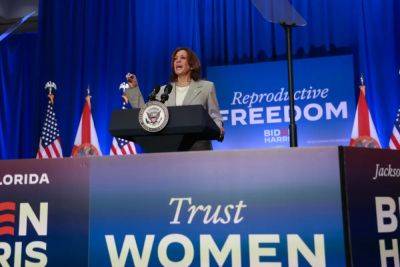How Six-Week Abortion Bans Went From Fringe to Reality
Just over a decade ago, six-week abortion bans were seen as too radical even by many members of the anti-abortion movement, who worried they carried too much political and legal risk.
On Wednesday, Florida became the latest state to put one into effect.
The law, which was signed last year by Gov. Ron DeSantis, a Republican, cuts off access to the procedure before many women even know they are pregnant, leaving millions of women in the South hundreds of miles from a clinic offering abortion.
The ban represents another victory for the true believers of the anti-abortion movement that seek sharp curbs on the procedure. But when such a ban was first introduced, mainstream abortion opponents who preferred gradually chipping away at abortion rights felt such restrictions could backfire and undermine their broader goals.
My colleague Elizabeth Dias covers religion and is the author, with Lisa Lerer, of a forthcoming book about the fall of Roe v. Wade. I asked her how the six-week ban moved from the fringe to the mainstream — and why those early warnings from anti-abortion allies might be coming true now. Our conversation was edited for length and clarity.
When did the concept of six-week abortion bans first emerge?
The Florida law didn’t just come out of nowhere — it’s related to a push that began more than a decade ago, in Ohio. There, in 2011, an evangelical activist, Janet Porter, began to advocate for a bill that would ban abortion when a fetal “heartbeat” is detectable, about six or eight weeks into a pregnancy.
That was during former President Barack Obama’s first term, a time when the Tea Party was rising and the anti-abortion movement was fairly weak relative to its power today. The fall of Roe was a long way away. How did







